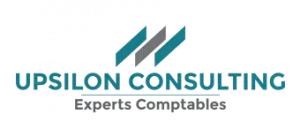Chartered Accountant in Morocco – How to Enter the Profession?
How to Become a Chartered Accountant in Morocco (also called certified public accountant)
Becoming a chartered accountant in Morocco (or certified public accountant) also means being a primary interlocutor for business leaders.
Indeed, due to their training, experience, and attentiveness, chartered accountants meet the various needs of a business. They also contribute to the economic and social development of the company.
Nevertheless, the expertise of a chartered accountant isn’t limited solely to a company’s accounting. They have several other skills that enable them to guide business leaders towards the most judicious solutions.
In fact, they are the preferred advisors to business heads. Their role is to assist them, from the start of their project to its launch.
Among other things, chartered accountants provide administrative, accounting, financial, tax, legal, and social support to business leaders. They can even transcend their basic functions and become effective advisors for business owners.
Consequently, chartered accountants maintain a relationship of trust with their clients.
Becoming a Member of the Order of Chartered Accountants in Morocco
To become a chartered accountant in Morocco, the law primarily requires a degree from the Moroccan chartered accounting program. Additionally, the law allows individuals with a chartered accounting degree from a country that has equivalency with the Moroccan chartered accounting degree. Many current members of the Order, for example, hold a French chartered accountant degree.
Training Curriculum for a Chartered Accountant in Morocco
The Moroccan Chartered Accountant degree was established by decree n° 2.89.519 on 23 hija 1410 (July 16, 1990).
It is awarded to candidates who meet the following training and internship conditions:
First, training conditions
To become a chartered accountant in Morocco, one must first meet training conditions: holding a national chartered accountant diploma.
The Chartered Accountant Training Program in Morocco is exclusively organized by the ISCAE Group. It leads to the National Diploma of Chartered Accountancy (DNEC).
Access modalities to the competition:
Candidates must first meet the eligibility conditions for this training program. Candidates admitted to the Moroccan chartered accounting program’s entrance examination hold one of the following degrees:
- Normal Cycle of ISCAE
- ISCAE Group (Master’s Degree)
- Higher Management Cycle of ISCAE
- ENCG (Master’s Degree)
- Bachelor’s in economic sciences with a focus on management or business economics
- Any diploma recognized as equivalent by the Ministry of Higher Education
The entrance examination tests:
Admitted candidates must then take an entrance examination for the Chartered Accounting program, which includes 4 written tests:
- General and analytical accounting
- Business law and tax law
- Management
- Expression and communication techniques
It should be noted that the chartered accounting program is highly selective. Each year, 500 to 1000 candidates take the examination, but only about sixty are admitted.
Admitted candidates must undergo a 3-year training program. This program runs concurrently with the completion of a professional internship.
Chartered Accountant in Morocco: What are the mastery areas of study?
- 1st year: Consolidation and harmonization of accounting, financial, and legal knowledge
- 2nd year: Deepening of disciplines fundamental for the chartered accountant
- 3rd year: Study of various audit techniques and account certification
What certificates a chartered accountant in morocco obtains each year?
First, a Certificate in Financial Studies and Advanced Accounting (after the first year)
Then, an Advanced Certificate in Chartered Accounting Techniques (after the second year)
Finally, an Advanced Certificate in Accounting Revision (after the third year)
Each of these certificates is subject to passing an exam organized annually in two sessions.
The examination sessions:
There are 2 examination sessions per year. A regular session takes place in June. Candidates who have not validated all modules are entitled to a second makeup session in September.
Admission to each of the aforementioned certificates is mandatorily conditioned by the candidate achieving an overall average of 12/20.
It is important to note that only candidates with an overall average above 9/20 are admitted to the September makeup session.
Then internship and thesis conditions
Candidates admitted to the chartered accounting program (referred to as trainee chartered accountants) must simultaneously complete a 6-semester professional internship. This is done under a practicing chartered accountant. A weekly internship duration of 32 hours must be justified over the 3-year period.
Trainee Chartered Accountants must also prepare six semi-annual reports. These reports must be validated by the internship supervisor, a stage controller, and a jury, before the final exam of the third year.
The end of the exams is followed by the writing of an end-of-study thesis.
This thesis is a scientific research and professional documentation work on a given issue. The candidate must demonstrate personal analysis and reflection to contribute to the profession.



